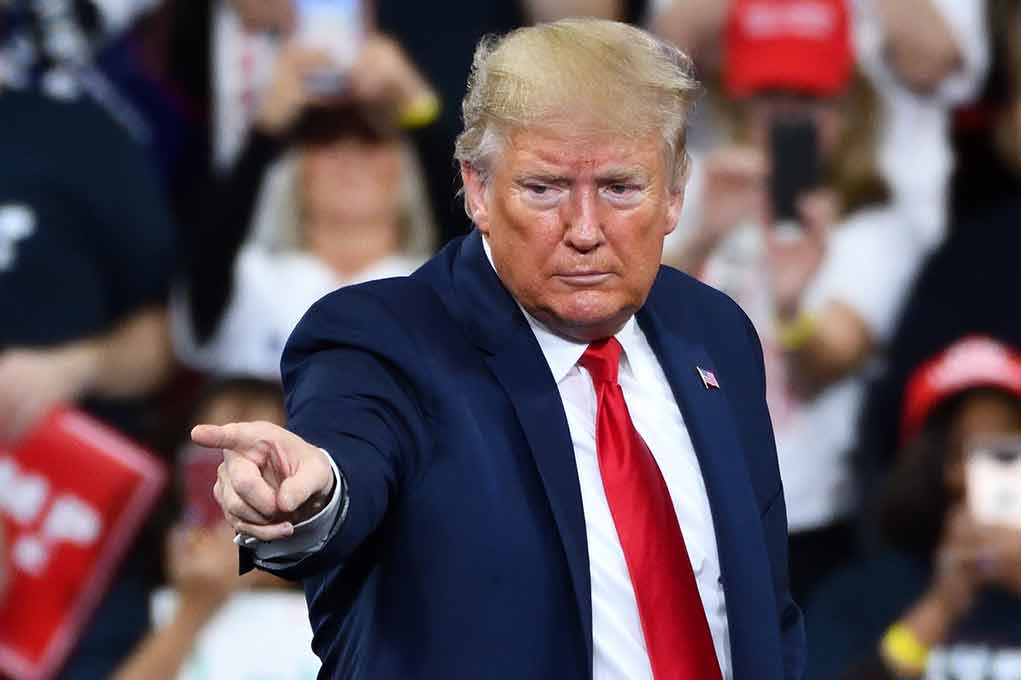
Trump’s bold plan for an “External Revenue Service” could reshape U.S. trade dynamics, but faces congressional hurdles and economic skepticism.
At a Glance
- Trump proposes a new “External Revenue Service” to collect tariffs and foreign revenue
- Plan includes significant tariffs on major trading partners, including a 60% tariff on Chinese goods
- Creation of federal agencies requires congressional approval, complicating Trump’s proposal
- Economists warn of potential trade disruptions and increased costs for American consumers
Trump’s Vision for a New Trade Revenue Agency
In a bold move that has sent shockwaves through the economic and political landscape, President-elect Donald Trump has unveiled plans for a new federal agency called the “External Revenue Service.” This proposed entity would serve as a counterpart to the Internal Revenue Service, focusing on collecting tariffs, duties, and revenue from foreign sources. Trump’s announcement signals a dramatic shift in U.S. trade policy, aiming to address perceived imbalances and boost domestic manufacturing.
The creation of this new agency is part of Trump’s broader strategy to reshape America’s economic relationships with its trading partners. By implementing more rigorous tariff and duty enforcement, the External Revenue Service would ensure that foreign businesses pay what Trump considers their “fair share” when accessing the U.S. market. This approach aligns with Trump’s long-standing criticism of current trade agreements, which he believes have disadvantaged American workers and industries.
Ambitious Tariff Plans and Potential Challenges
Trump’s tariff proposals are nothing short of ambitious. The plan includes a 10% tariff on global imports, a staggering 60% tariff on Chinese goods, and a 25% tariff on imports from Canada and Mexico. These measures are designed to address trade imbalances and serve as a tool for foreign policy leverage, particularly concerning issues like drug trafficking and illegal immigration from neighboring countries.
“Through soft and pathetically weak Trade agreements, the American Economy has delivered growth and prosperity to the World, while taxing ourselves. It is time for that to change” – Donald Trump
However, the implementation of these tariffs and the creation of the External Revenue Service face significant hurdles. The power to create federal agencies lies with Congress, not the President, which could complicate Trump’s plans. While Republicans currently hold majorities in both the House and Senate, the proposal may still face scrutiny and potential opposition from lawmakers concerned about its economic impact.
Economic Implications and Expert Skepticism
Trump’s tariff policy aims to boost domestic manufacturing and serve as a powerful foreign policy tool. However, economists and trade experts have expressed skepticism about the effectiveness of these measures. Many warn that the proposed tariffs could lead to significant disruptions in trade flows, increase costs for businesses and consumers, and potentially provoke retaliatory measures against U.S. exports.
“No amount of silly rebranding will hide the fact that Trump is planning a multi-trillion-dollar tax hike on American families and small businesses to pay for another round of tax handouts to the rich” – Oregon Sen. Ron Wyden
Critics argue that tariffs are an inefficient form of taxation, with costs likely to be passed on to American consumers in the form of higher prices for goods. Democratic lawmakers have been particularly vocal in their opposition, with Senator Ron Wyden characterizing the plan as a tax hike on American families and small businesses. This criticism underscores the political challenges Trump may face in implementing his vision for trade policy.
Broader Economic Strategy and Government Efficiency
The proposed External Revenue Service is part of a larger economic strategy that includes efforts to streamline government operations. Trump has appointed Elon Musk and Vivek Ramaswamy to lead the Department of Government Efficiency (DOGE), a task force aimed at reducing the size of the federal government and cutting regulations. This move signals Trump’s commitment to reshaping not just trade policy, but the overall structure and function of the government.
As the debate over Trump’s trade policies and the proposed External Revenue Service continues, it’s clear that these plans could have far-reaching implications for the U.S. economy, international trade relationships, and the role of government in managing trade. While supporters see these measures as necessary steps to protect American interests and boost domestic industries, critics warn of potential economic disruptions and increased costs for consumers. The coming months will likely see intense discussions and negotiations as Trump seeks to turn his vision for U.S. trade policy into reality.
Sources:
- Trump Says He Wants To Establish ‘External Revenue Service’ To Collect Tariff Money
- More trouble for US trade partners? Trump to set up new department to collect “tariffs, duties, and all revenue” from foreign sources – The Economic Times
- World News | Will Create ‘External Revenue Service’ Agency to Collect Tariff Income: Trump

